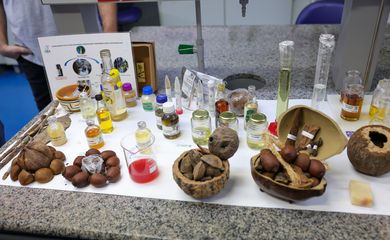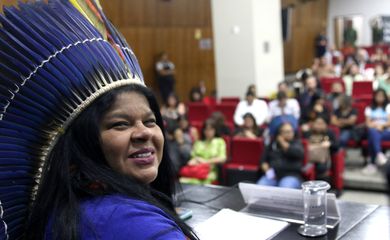XPrize: Scientists race to unravel the mysteries of rainforests

The challenges faced by biome specialists around the world are countless, and when the environment is as vast and dense as that of a rainforest, difficulties can take on magnified proportions, like the daunting task of gathering data on the highest branch of a 50-meter-tall tree.

In a bid to overcome these constraints and make progress in mapping the entire ecosystem found in the central area of the planet, XPrize Rainforest was launched as a global competition, now in its final phase.
“We still know very little about all of the planet’s biodiversity. We are yet to become fully familiar with the forest’s inventory and that’s exactly what XPrize Rainforest is doing: mapping in order to learn, and learning in order to protect,” Pedro Hartung, executive director of the Alana Institute, which is funding the prize, said during the launch of the final stage in Manaus, Amazonas state.
One of the most comprehensive global reports on biodiversity, Living Planet, published by WWF, pointed out in 2022 that over the course of 40 years an average of 69 percent of the world’s fauna had been wiped out. Many species were not even named by science, as 80 percent of the estimated 10 million life forms on the planet have never been studied or registered.
The challenge posed by the competition is to speed up the development of technological solutions for collecting and cataloging data on different rainforest environments, enabling conservation and sustainable development strategies.
The final prize is $10 million, to be divided among the first-place winners, with $5 million for the first place, $2 million for the second, and $500 thousand for the third. The remaining $2.5 million will be split into bonuses paid to competitors who advanced to the semi-final and final.
According to Peter Houlihan, the XPrize Foundation’s vice-president for biodiversity and conservation, the accelerating rate of loss of biodiversity and ecosystem services humanity depends on has been a determining factor in the search for these solutions. “We can’t protect parts of the planet if we’re not able to measure and monitor what’s on it,” he pointed out.
Launched in 2019, the competition began with 300 teams, evaluated as they progressed through research, technology development, and solution implementation.
Almost five years later, the six best solutions went through the final test this July, in the Rio Negro Sustainable Development Reserve, some 25 kilometers from Manaus.
Competitors
The finalist teams are the Brazilian Team, made up mostly of Brazilian scientists and researchers; Providence +, with representatives from Brazilian and Spanish universities and institutions; ETH BiodivX, registered as Swiss, but bringing together scientists from various parts of the world, including Brazilians; and the North American teams Map of Life, Welcome to the Jungle, and Limelight Rainforest, also with global expertise.
In this stage, each group has been given the opportunity to demonstrate the improvements made since the semi-final, held in Singapore in 2023. The test was carried out in a 100-hectare area of the Amazon, in which the researchers captured samples of any extract—vegetation, air, soil, or water—for 24 hours and produce data in up to 48 hours.
Until the winners are announced in November, during the G20 summit in Rio de Janeiro, the judges will evaluate the results achieved against the criteria of innovation, data validation, raising social awareness, and the scalability of the innovations.
Technology
In the competition, all six teams have to come up with solutions structured around adapting drones, microphones, cameras, optical sensors, robots, artificial intelligence, and compact laboratories for analyzing environmental DNA. The decision on the award, Houlihan pointed out, will be based on how the scientists combine different expertise taking into account the wisdom of local communities, the legacy of science and, above all, low cost.
“If these solutions can be used all over the world—by different park managers, by indigenous communities, by whoever is working to protect their environment—mapping and monitoring can serve as tools for protecting biodiversity in their territories and, for this reason, one of the most important goals of the award is to make the solutions scalable and accessible.”
In his view, if these innovations reach all rainforest regions, they could prevent crimes such as biopiracy, deforestation for mining, and illegal logging.
“These technologies could play a role in protecting biodiversity, also by monitoring these illegal activities,” he argued.
Competitions
The XPrize Foundation is a California-based nonprofit that holds global competitions in search of solutions to humanity’s greatest challenges, favoring the democratization of innovations and the promotion of human resources.
The contests are financed by philanthropic initiatives with the $10 million donation made by the Alana Institute, a nonprofit that promotes efforts to protect the rights of children and adolescents in Brazil.
Thus far, competitions have showcased more than 30 technological innovations, with prizes surpassing $500 million, invested in the most diverse areas of knowledge, including health care, space exploration, climate and energy, and human development. An innovation council comprising 44 philanthropists from around the world determines the focus of the new challenges.
*Reporter and photographer Fábio Pozzebom traveled at the invitation of Instituto Alana.




